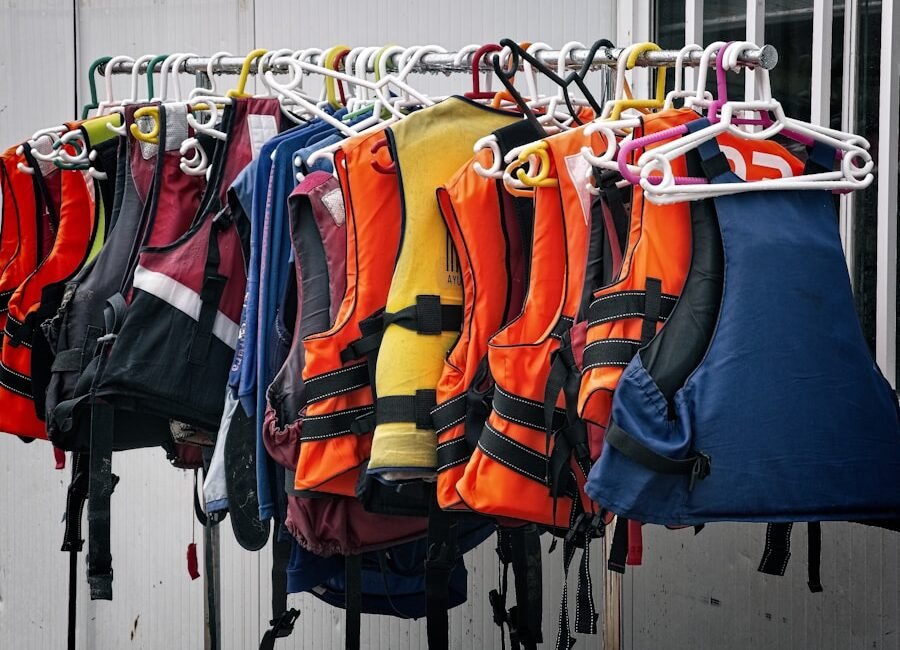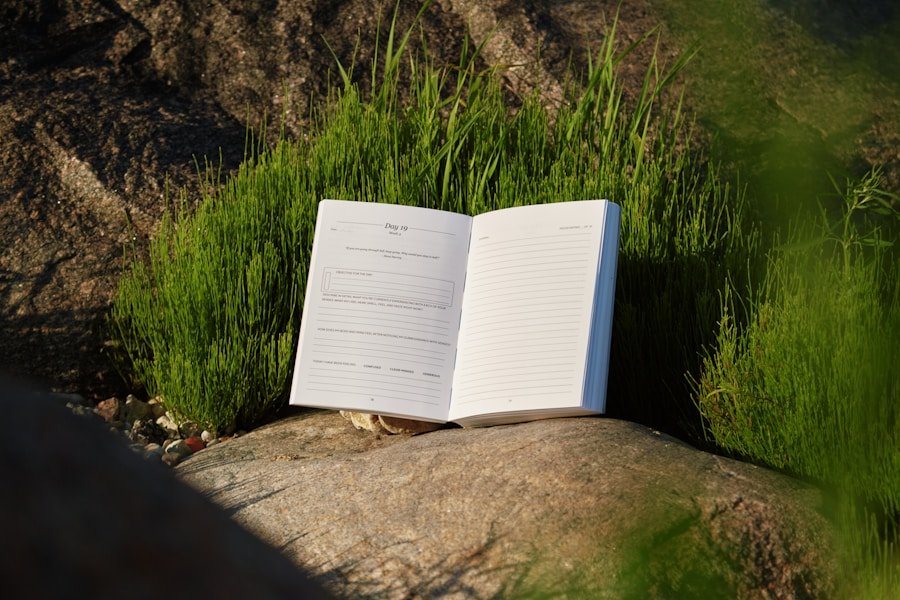Engaging in water sports at the campsite requires a paramount focus on safety. Regardless of the activity, whether it’s swimming, diving, or other water-based pursuits, it is crucial to acknowledge the potential risks involved and take proactive measures to mitigate them. To ensure a safe and enjoyable experience, it is essential to be aware of common hazards and pack vital safety equipment, highlighting the importance of careful planning and preparation in water sports safety at the campsite.
Key Takeaways
- Always wear appropriate safety gear such as life jackets and helmets while participating in water sports at the campsite.
- Common water sport hazards at campsites include strong currents, underwater obstacles, and changing weather conditions.
- Pack essentials such as first aid kits, communication devices, and emergency whistles for water sports activities.
- Stay safe while swimming and diving by avoiding alcohol consumption, staying within designated swimming areas, and being aware of your surroundings.
- Stay alert for changing weather conditions by checking weather forecasts and being prepared to seek shelter in case of sudden storms while enjoying water sports at the campsite.
Understanding the Risks: Common Water Sport Hazards at Campsites
Common Hazards in the Water
Drowning is one of the most significant risks, which can occur if proper safety measures are not taken. Additionally, underwater obstacles such as rocks, logs, and debris can pose a threat to swimmers and divers.
Currents and Water Conditions
Another potential hazard is the presence of strong currents or undertows, which can quickly pull swimmers out to deeper water.
Waterborne Illnesses and Safety Precautions
It’s also important to be aware of the potential for waterborne illnesses, especially in natural bodies of water. By understanding these common hazards, campers can take the necessary steps to mitigate risks and ensure a safe and enjoyable water sports experience.
Safety Gear Essentials: What to Pack for Water Sports Activities
When it comes to water sports at the campsite, having the right safety gear is essential for staying safe in and around the water. Life jackets are a must-have for swimmers and boaters of all ages, as they provide buoyancy and support in the event of an emergency. Additionally, snorkelers and divers should always wear a snorkel vest or buoyancy control device to help them stay afloat and conserve energy while in the water.
Other essential safety gear includes a first aid kit, whistle, and waterproof flashlight for emergencies, as well as sunscreen and protective clothing to prevent sunburn and dehydration. By packing these essential items, campers can be better prepared to stay safe while enjoying water sports at the campsite.
Water Safety Tips: Staying Safe While Swimming and Diving
| Water Sport | Safety Tips |
|---|---|
| Swimming | Always swim with a buddy, never dive into shallow water, and be aware of currents and tides. |
| Kayaking/Canoeing | Wear a life jacket, stay within designated areas, and be mindful of weather conditions. |
| Snorkeling | Use a snorkel buddy system, avoid touching marine life, and be cautious of strong currents. |
| Jet Skiing | Follow speed limits, maintain a safe distance from other watercraft, and always wear a life jacket. |
Whether you’re swimming or diving at the campsite, there are several important safety tips to keep in mind. First and foremost, it’s crucial to always swim or dive with a buddy, as having a partner can provide assistance in the event of an emergency. Additionally, it’s important to never swim or dive alone, especially in unfamiliar or remote bodies of water.
Before entering the water, it’s also important to assess the conditions and be aware of any potential hazards such as strong currents or underwater obstacles. When diving, it’s important to always perform a thorough equipment check and dive within your limits to avoid accidents or injuries. By following these water safety tips, campers can reduce their risk of accidents and enjoy a safer water sports experience.
Weather Awareness: How to Stay Alert for Changing Conditions
Weather can play a significant role in water sports safety at the campsite, so it’s important for campers to stay alert for changing conditions. Sudden storms or high winds can create dangerous conditions for swimmers and boaters, so it’s important to keep an eye on the forecast and be prepared to seek shelter if necessary. Additionally, it’s important to be aware of signs of changing weather such as darkening skies, increasing winds, or sudden drops in temperature.
By staying aware of changing weather conditions, campers can take the necessary precautions to stay safe while enjoying water sports at the campsite.
Emergency Preparedness: Knowing What to Do in Water Sport Accidents
Staying Calm in an Emergency
In the event of a water-related emergency, it’s crucial to remain calm and assess the situation before taking action. This will help ensure that the right decisions are made to ensure everyone’s safety.
Providing Assistance and Seeking Help
If someone is in distress in the water, it’s important to reach out for help immediately and provide assistance if possible. Having a plan in place for contacting emergency services and administering first aid can make all the difference in a water sport accident.
Ensuring a Safer Experience
By being prepared for emergencies, campers can ensure a safer and more enjoyable experience while participating in water sports at the campsite. With the right knowledge and planning, campers can minimize the risk of accidents and focus on having fun in the water.
Supervision and Buddy System: Ensuring Safety in Group Water Activities
When it comes to group water activities at the campsite, supervision and the buddy system are essential for ensuring safety. Whether it’s a group of children swimming in a lake or a team of divers exploring an underwater reef, having responsible supervision and a buddy system in place can help prevent accidents and provide assistance in the event of an emergency. It’s important for adults to closely supervise children while they are swimming or participating in other water activities, and for all participants to have a designated buddy to watch out for each other.
By implementing these safety measures, campers can enjoy group water activities with greater peace of mind.
Responsible Recreation: Protecting the Environment While Enjoying Water Sports
In addition to staying safe while enjoying water sports at the campsite, it’s also important for campers to be mindful of their impact on the environment. Whether swimming, diving, or boating, it’s crucial to respect natural habitats and wildlife while enjoying water activities. This means avoiding disturbing or damaging underwater ecosystems, properly disposing of trash and waste, and following any specific guidelines or regulations for water sports in the area.
By practicing responsible recreation, campers can help protect the environment while enjoying their favorite water sports at the campsite. In conclusion, staying safe while enjoying water sports at the campsite requires careful planning, preparation, and awareness of potential risks. By understanding common hazards, packing essential safety gear, following water safety tips, staying alert for changing weather conditions, being prepared for emergencies, implementing supervision and buddy systems for group activities, and practicing responsible recreation, campers can ensure a safer and more enjoyable experience while participating in water sports at the campsite.
With these key factors in mind, campers can dive in with confidence and make the most of their time on the water while staying safe and protecting the environment.
FAQs
What are some common water sports activities at campsites?
Some common water sports activities at campsites include swimming, kayaking, canoeing, paddleboarding, and fishing.
What are some safety tips for water sports at the campsite?
Some safety tips for water sports at the campsite include wearing a life jacket, staying hydrated, being aware of weather conditions, and knowing your limits.
What should I do if I encounter a water emergency while participating in water sports at the campsite?
If you encounter a water emergency while participating in water sports at the campsite, it’s important to stay calm, call for help if needed, and try to stay afloat until assistance arrives.
Are there any specific rules or regulations for water sports at campsites?
Specific rules and regulations for water sports at campsites may vary depending on the location. It’s important to familiarize yourself with any posted rules and regulations and to follow them accordingly.
What should I do to prepare for water sports at the campsite?
To prepare for water sports at the campsite, it’s important to pack appropriate gear, such as a life jacket and sunscreen, and to familiarize yourself with the area’s water conditions and any potential hazards.













